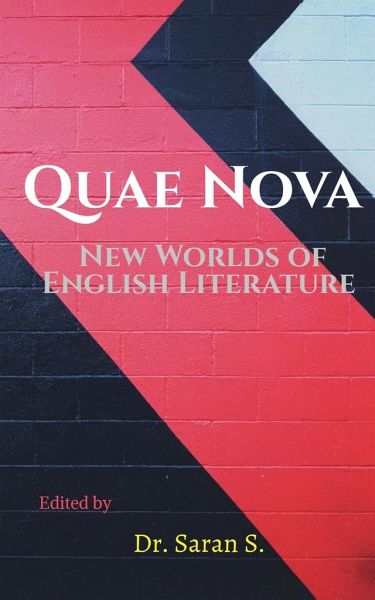
Quae Nova; New Worlds of English Literature
Versandkostenfrei!
Versandfertig in 1-2 Wochen
14,99 €
inkl. MwSt.

PAYBACK Punkte
7 °P sammeln!
Numerous nations, including the United Kingdom and its royal dependencies, the Republic of Ireland, the United States, and the former British Empire nations, are represented in English-language literature. More than 1,400 years have passed since the beginning of the English language. Old English refers to the earliest varieties of English, a collection of Anglo-Fresian dialects that were introduced to Great Britain by Anglo-Saxon conquerors in the fifth century. Despite being set in Scandinavia, Beowulf is the most well-known book in Old English and has attained national epic status in England...
Numerous nations, including the United Kingdom and its royal dependencies, the Republic of Ireland, the United States, and the former British Empire nations, are represented in English-language literature. More than 1,400 years have passed since the beginning of the English language. Old English refers to the earliest varieties of English, a collection of Anglo-Fresian dialects that were introduced to Great Britain by Anglo-Saxon conquerors in the fifth century. Despite being set in Scandinavia, Beowulf is the most well-known book in Old English and has attained national epic status in England. The written form of the Anglo-Saxon language, however, declined in use after the Norman conquest of England in 1066. French replaced English as the primary language of courts, parliament, and polite society as a result of the influence of the emerging nobility. Middle English refers to the English that was used after the Norman invasion. This kind of English persisted until the 1470s when the London-based Chancery Standard (late Middle English) took over. The Canterbury Tales author Geoffrey Chaucer (1343–1400) played a pivotal role in the acceptance of Middle English as a legitimate literary language at a time when French and Latin were still the two most common literary languages in England. The King James Bible (1611), the Great Vowel Shift, and Johannes Gutenberg's creation of the printing press in 1439 all contributed to the linguistic standardisation of the language.














